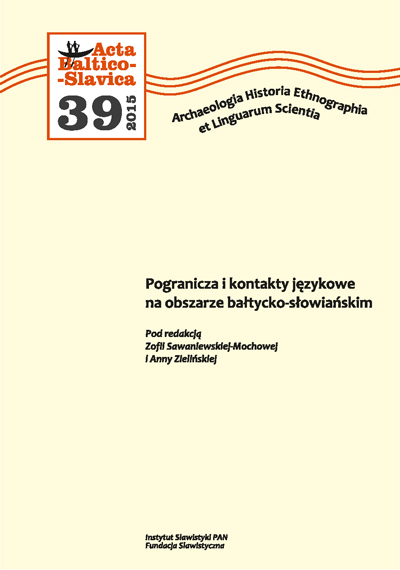Недостатки и достоинства разных систем транскрипции при записи говора старообрядцев в Польше
Advantages and Disadvantages of different Types of phonetic Transcription for Notation of the Dialect of Old Believers in Poland
Author(s): Michał Jaskólski Subject(s): Lexis, Historical Linguistics
Published by: Instytut Slawistyki Polskiej Akademii Nauk
Keywords: bilingualism; Russian dialect; Polish language; language island; Old Believers; phonetics; phonetic transcription
Summary/Abstract: The author presents the problems associated with the phonetic representation of the dialect of the Old Believers in Poland under the conditions of bilingualism. The Old Believers’ Russian dialect has been under influence of the Polish language for over a century. On the phonetic level the main expressions of interference are: pronunciation of palatal consonants instead of Russian soft coronal consonants [s’], [z’], [t’], [d’], [n’] as well as pronunciation of the labial glide [w] instead of Russian velarized lateral consonant [ł]. In the conditions of bilingualism using only a Russian phonetic transcription seems to be insufficient, since it does not include signs for notation sounds which turned up in the Russian dialect under the influence of Polish phonetics. With reference to the mentioned above one should use a more universal transcription system. Since in the studied dialect numerous elements of two languages are coexisting and both of them are Slavonic languages, the author proposes the use of Slavonic transcription system for notation of Polish Old Believers’ speech.
Journal: Acta Baltico Slavica
- Issue Year: 2015
- Issue No: 39
- Page Range: 174-185
- Page Count: 12
- Language: Russian

